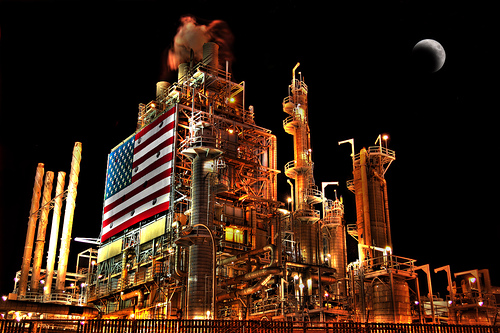Big Oil’s Influence on US Politics

Please note that we are not authorised to provide any investment advice. The content on this page is for information purposes only.
Energy and taxes have come up as important topics in this year’s race to the White House. From energy independence to tax breaks for the oil industry, affordable gas prices and environmental protection – these are the issues that can and will affect the vote. But with Big Oil working behind the scenes and funding U.S. politicians, the industry’s influence on politics cannot be underestimated.
Energy and taxes have come up as important topics in this year’s race to the White House. From energy independence to tax breaks for the oil industry, affordable gas prices and environmental protection – these are the issues that can and will affect the vote. But with Big Oil working behind the scenes and funding U.S. politicians, the industry’s influence on politics cannot be underestimated.
U.S. Rep. John Boehner, speaker of the House of Representatives, received nearly twice as much financial support from donors tied to the energy sector than did the next-closest recipient, a report from the National Wildlife Federation finds. The 20-page report highlights the role it says oil companies play in U.S. politics, stating energy companies are working behind the scenes on Capitol Hill to influence legislation in favour of oil, natural gas and coal policies. The NWF report finds that the current 112th U.S. Congress has voted one out of every five times against legislation drafted in favour of environmental issues.
Boehner, R-Ohio, in a press conference in September, spoke out against a stagnant unemployment climate in the United States. The U.S. Labour Department, in an early September report, showed the unemployment rate dropped slightly in August to 8.1 percent, down 0.2 percent from its July level. That’s the 43rd consecutive month, however, that the unemployment rate was above 8 percent, the longest period since World War II. The House speaker said this was a sign of President Barack Obama’s failure to lead.
Related Infographic: Energy Usage & Security In The US
That Friday, Boehner led the House of Representatives in passing the so-called Stop the War on Coal Act, a measure that would block the Environmental Protection Agency from regulating greenhouse gases. It’s unlikely to pass through the Senate.
[quote] “We’re the Saudi Arabia of coal and the president wants to shut down coal production and the use of coal in the United States so that we can export it to our economic competitors around the world,” said Boehner in a statement. It’s a jobs issue, he said. [/quote]
The report from the NWF, released on the eve of the House vote, finds that Oxbow Corp., a private company focused on mining and marketing of coal, natural gas and petroleum, donated more than $80,000 to Boehner’s campaign since 2010. The NWF explains that Oxbow was founded by William Koch, whose twin billionaire brothers are among the largest corporate financiers of the U.S. Congress. According to information NWF gathered from The Center for Responsive Politics, energy companies like Oxbow gave more than $814,000 to Boehner’s campaign during the current Congress.
The NWF’s report, however, is non-partisan in its effort to showcase the energy sector’s monetary influence over U.S. politics. Sen. Joe Manchin, D-W.Va., who serves on the Senate Energy and Natural Resources Committee, ranked No. 2 on the NWF’s list. Manchin, ahead of Friday’s vote in the House, said it was clear that “the EPA has overstepped its bounds” in terms of action that could target the coal industry. Of the top 10 lawmakers listed in the NWF report, however, Manchin is the only Democrat and received $480,050 compared to Boehner’s $814,060.
The NWF states that the House of Representatives, led by Boenher and his fellow Republicans, voted 109 times since the start of 2011 to weaken environmental laws or some of the safety regulations in the oil industry.
Larry Schweiger, president and CEO of the NWF, said the report provides a “behind the curtains” look into U.S. politics.
[quote] “America has been losing ground in the climate fight, and much of this is due to gridlock within our political system,” hewrites. “The resulting inertia is sustained by oil, gas, and coal companies that have spent more than a billion dollars on campaign contributions, public advertising, and lobbying in the past two years alone.” [/quote]
Related Story: Can We Learn To Live With Higher Oil Prices?: Gail Tverberg
Related News: Top 5 Figures Influencing Renewable Energy in the US
By Daniel J. Graeber, Oilprice.com
Big Oil Funding U.S. Politics is republished with permission from OilPrice.com
Get more special features in your inbox: Subscribe to our newsletter for alerts and daily updates.
Do you have a strong opinion on this article or on the economy? We want to hear from you! Tell us what you think by commenting below, or contribute your own op-ed piece at [email protected]




